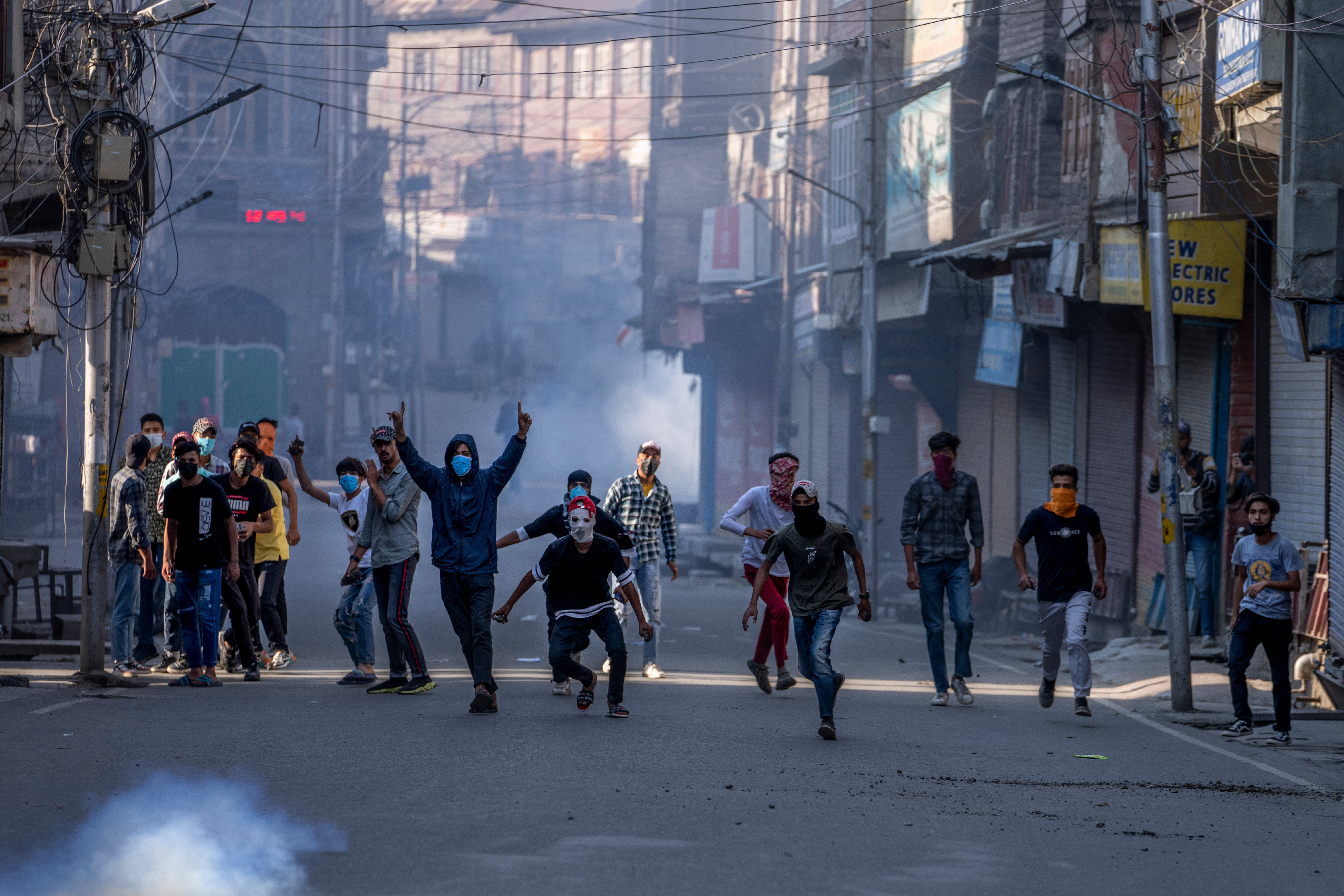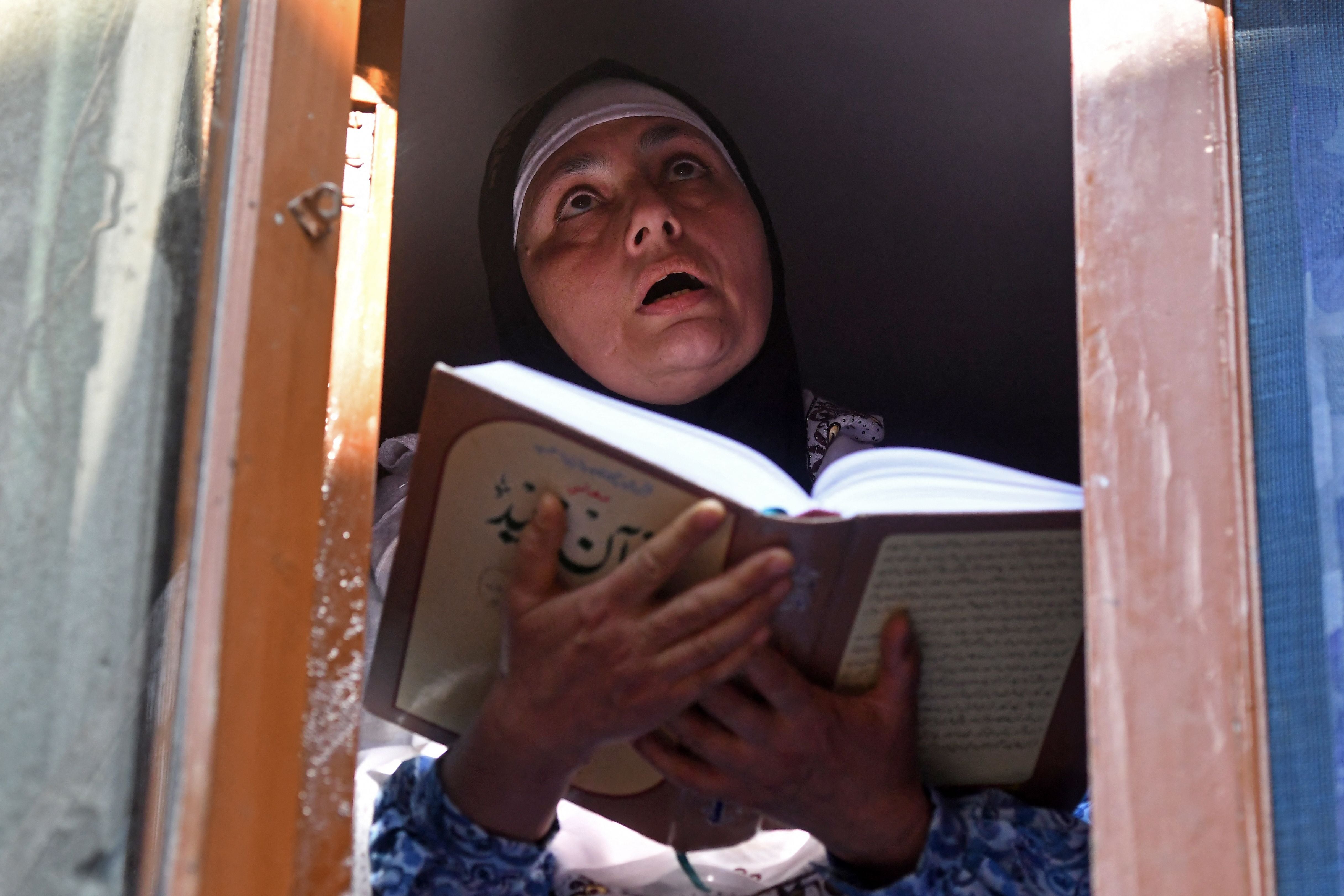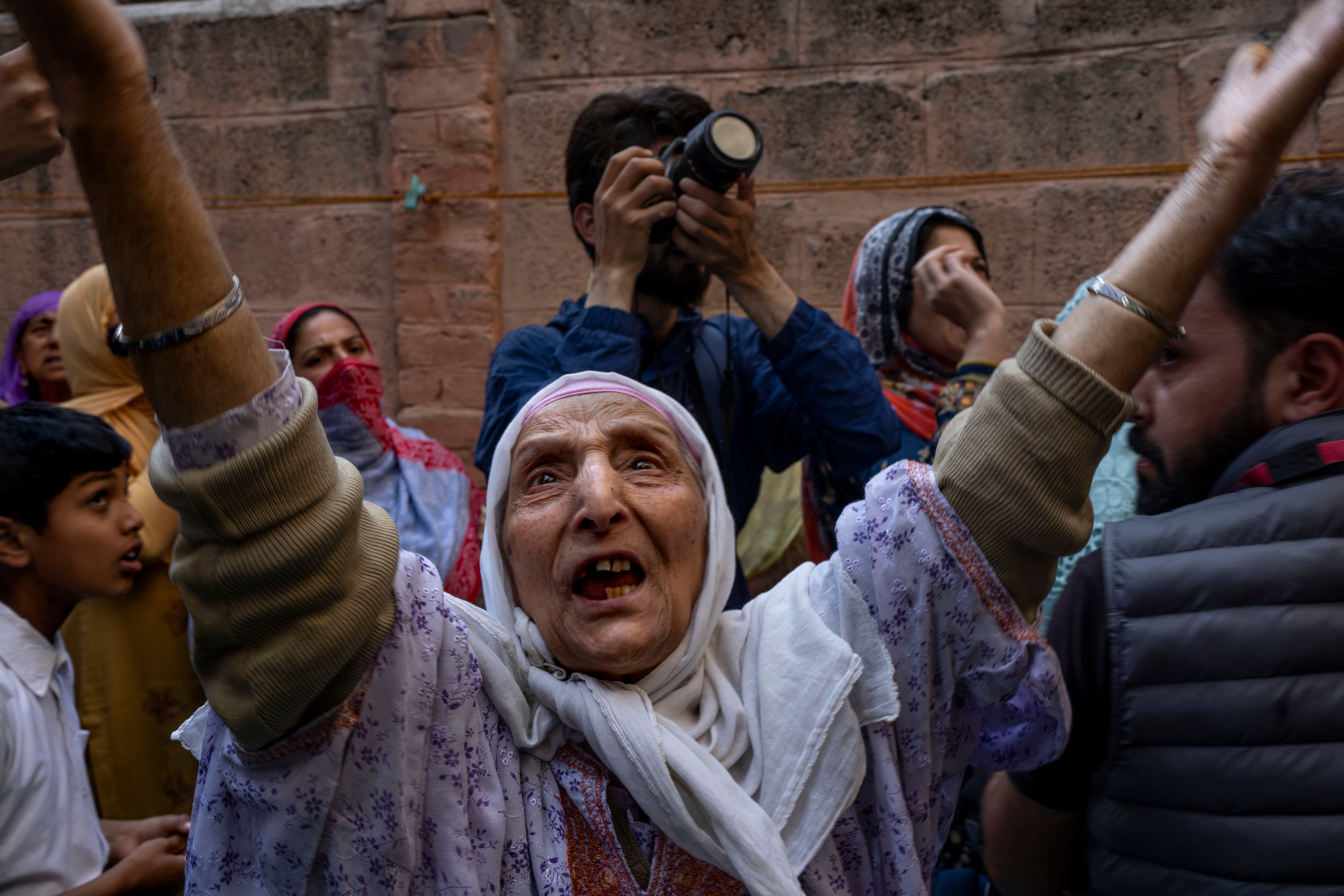Yasin Malik: Protests in Kashmir after India hands separatist leader two life sentences
Plea to give the Jammu and Kashmiri Liberation Front leader a death sentence was rejected by court

Violent protests erupted in parts of Kashmir after a court in India handed prominent separatist leader Yasin Malik two life sentences for “waging war against the government of India” and funding terror activities.
Malik, the leader of the banned pro-independence group Jammu and Kashmiri Liberation Front (JKLF), was on Wednesday also given five 10-year jail terms and three five-year jail terms on separate charges, all under India’s criminal code.
Some of the charges for which he was convicted included criminal conspiracy and conspiracy for terrorism.
The court said all sentences were to be served concurrently.
A plea by the prosecutor – on behalf of India’s federal National Investigation Agency (NIA) – for the death penalty was rejected by the court, which said the case did not fall in the “rarest of rare” category needed for such a sentence.
Soon after the verdict was announced, scores of people gathered at Malik’s residence at Maisuma, just 350m away from Lal Chowk, a prominent city square in Jammu and Kashmir’s summer capital Srinagar.

Protesters marched around the area chanting slogans calling for ”freedom” before clashing with police.
People shuttered shops and several observed spontaneous shutdowns as a massive police and paramilitary deployment was carried out in parts of Kashmir ahead of the verdict on Wednesday.
Security forces resorted to firing tear gas to disperse masked protesters, some of whom threw stones at them, and deployed surveillance drones in the area.
Mobile internet services were suspended in the region as a precautionary measure anticipating protests.
“Court verdict in minutes by Indian kangaroo courts. Yasin Malik is the bravest man to challenge the Hitler Modi of this Era !!!” tweeted his wife Mushaal Hussein, saying he would never surrender.
Announcing the verdict, the court stated that Malik “intended to strike at the heart of the idea of India and to forcefully secede J&K from Union of India”.
Malik, who had pleaded guilty to all charges on 10 May, said he gave up violence in 1994 and declared he “would follow the peaceful path of Mahatma Gandhi and engage in non-violent political struggle”.

Both India and Pakistan have fought over the the Muslim-majority Himalayan region of Jammu and Kashmir and have waged two wars against each other after British rule ended in 1947.
Both countries govern parts of the region but claim the entire region as their own. Part of the reason for the conflict stems from the fact that the British arbitrarily drew borders to divide the region between the two countries before leaving the subcontinent.
Pakistan’s prime minister Shahbaz Sharif called the convictions “a black day for Indian democracy”.
“Today is a black day for Indian democracy & its justice system. India can imprison Yasin Malik physically but it can never imprison idea of freedom he symbolises. Life imprisonment for valiant freedom fighter will provide fresh impetus to Kashmiris’ right to self-determination,” he said in a tweet.
The country also summoned the Indian High Commission’s charge d’affaires to lodge a protest against the verdict that it said was the result of “trumped-up charges”.
Malik has been in jail since 2019 when he was arrested during a massive crackdown on pro-independence Kashmiri leaders and parties following the Pulwama suicide bombing that killed around 40 paramilitary forces.
The Indian government also banned Malik’s JKLF in 2019 accusing it of funding terrorism and blaming it for the deaths of minority Hindus in the Himalayan region.

The NIA had charged him for receiving funds “from Pakistan to carry out terrorist activities and stone-pelting during the Kashmir unrest, especially in 2010 and 2016”.
In August 2019, the Indian government scrapped Jammu and Kashmir’s special status granting partial autonomy to the region under India’s constitution, and unilaterally divided the region into two federally controlled territories.
Malik was among the first Kashmiris to join an anti-India insurgency in 1989 when the restive region erupted into a full-blown rebellion.
Pro-independence organisations carried out attacks against the Indian security establishment, carried out targeted killings of pro-India Kashmiri politicians and led stone-pelting protests.
Malik was also arrested during a raid by Indian troops in 1990, but was released in 1994.
He said upon his release that he had renounced violence, agreed to a unilateral ceasefire and sought the end of Indian rule over the region through peaceful political means.
Join our commenting forum
Join thought-provoking conversations, follow other Independent readers and see their replies
Comments
Bookmark popover
Removed from bookmarks